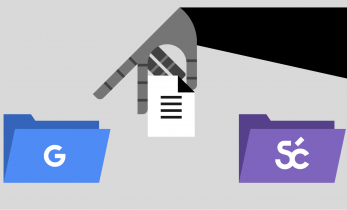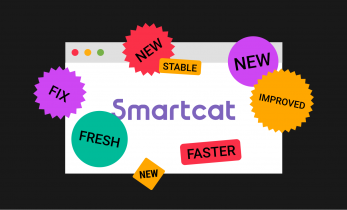Greater than 5 minutes, my friend!
Translator: Rise of the Machines? My (bad) experiences with post-editing machine translations and some (good) things I've learned
Translating when you’re in the zone is like driving a Maserati through the Alps. It’s not always like that, but I know I know I’m not the only who has experienced times when words zip into place without effort and hours fly by in minutes. In his book on work satisfaction, psychologist Mihaly Csikszentmihalyi refers to this experience as flow: a state of relaxed, enjoyable engagement when you’re immersed in a task that is neither boring nor too difficult.
Now imagine you’re trying to get to an appointment during rush hour: it’s stop-start traffic all the way, you hit nothing but red lights and other drivers keep switching lanes and cutting you off.
That’s what post-editing raw machine translation output is like.
If the topic of machine translation tends to make tempers flare, this is why. Nobody wants to give up mountain roads for rush-hour hell, and you can’t blame people for getting a wee bit defensive when they’re told that resistance is futile and the last one on the MT bandwagon is a rotten egg. It reminds me of this “Fry and Laurie” skit where a minister deflects any critical questioning of his proposal by shouting that it’s “a GOOD deal for Britain! A GOOD DEAL!”
As in politics, any rational discussion of MT tends to degenerate into two extremes (Hell No I Won’t Go versus MT or Die) trying to shout each other down. Unfortunately this heartfelt frustration on both sides also obscures some interesting ideas that might be worth pondering.
As you have probably discerned by now I am not a fan of MT, so I decided it was time to take a closer look at the arguments of the pro-MT camp. I’m happy to use technology but reading about it puts me to sleep, so my impressions of “the other side” had always been limited to whatever I managed to pick up through osmosis. I figured Jost Zetzsche’s GeekSpeak column in the ATA Chronicle would be a good place to start since I knew he had written extensively on MT, so, fortified with extra-strong coffee, I delved in.
The first thing I discovered is that Zetzsche is a translator first and foremost, that he promotes technology only to the extent that it benefits translators and that he is not, in fact, an MT-industry flunky. So Jost, you have no idea who I am but please accept my apologies for misjudging you.
I also learned that there are actually two ways to use machine translation.
The obvious one we all know and hate is post-editing, i.e. fixing the raw MT output produced by someone else’s MT engine. In this scenario, the MT is the active agent and the translator cleans up the mess. I did quite a bit of post-editing during my first year as a translator, as I was unaware at the time of any controversy surrounding this issue and as a new translator I was happy to get any work at all. After a few months I stopped accepting these assignments, though, because the work was so mind-numbingly boring and frustrating, plus it dawned on me that I was getting paid less money for more work that was exponentially less enjoyable.
What was new to me is that it is also possible to use MT technology for our own purposes in combination with our own CAT tools. Two of the possibilities suggested by Zetzsche are:
- Using MT to correct fuzzy TM matches, thus increasing the match percentage of the segment
- Using MT as an autosuggest tool, where you do your own translating but the MT offers suggestions as you type.
In this scenario, the translator is the driving force and the MT just one of many tools at his or her disposal. As Zetzsche reiterates in his August 2014 column, “There really is no place for post-editing in that kind of environment”.
He also emphasizes that even this personalized use of MT is not for everyone and not suitable for every type of document. Software strings obviously lend themselves much more to tools that take advantage of repetition than, say, a marketing text or a case history in a medical journal. By the same token, translators who specialize in IT and technology are much more likely to enjoy spending lots of time customizing their CAT tools and tinkering with fuzzy matches. Their “flow” experience is the challenge of modifying their tools to create ever closer matches.
There are valid uses for MT, for example in informal settings (Facebook) or emergencies (“Please call a doctor!”). It can also be useful, as Zetszche shows, as one of many tools at the translator’s disposal.
But MT engines are still very far from the utopian ideal expressed in the 2009 White House policy paper of “automatic, highly accurate and real-time translation”, hence the need for human post-editing. I can’t blame MT coders for coding; it’s what they do and they are no doubt motivated by a communication-related higher purpose that is very similar to ours. But that doesn’t mean we have to do their job for them.
So what can we do?
Refuse post-editing jobs. There is no basis for claims that increasing numbers of translators are turning to post-editing and that eventually we’ll all have to bite the bullet if we want to survive. First of all, there are no data on how many of us currently accept post-editing work and whether or not this is an upward trend. I also read somewhere that it’s becoming harder and harder for PMs to find takers for post-editing projects because everyone hates doing it. This is certainly closer to my own experience, because PMs who offer me post-editing jobs usually come back several times to try and renegotiate rather than give this prized job to one of the other eager takers. The point is that we are under no obligation to turn doomsday claims into self-fulfilling prophecies.
Advocate for our interests. In many of his articles, Zetzsche expresses the need for ongoing dialogue with MT developers. They need to make a living as well, and if the only market they can see consists of non-translators, the product will meet the needs of non-translators only. Translators who are into technology should talk to developers and suggest features they would like to see. This would indirectly benefit all of us, as every translator-friendly feature is one more step towards transforming a post-editing tool into a translation environment tool.
This is closely related to PR, another hot-button topic. In his article on machine translation (NY Times, June 2015), Gideon Lewis-Kraus relates a conversation with a computational linguist at an MT conference about the tension between MT developers and translators. “`Go to the American Translators Association convention’, one marathon attendee told me, ‘and you’ll see — they hate us.’” This is probably pretty accurate, to be honest, but it’s not a good thing. Being known for what we’re against rather than what we’re for is a good way to relegate ourselves to the “haters gonna hate” corner, where we’ll have exactly zero influence on the very issues that affect us most. We can do better than that.





I enjoy reading your posts, Marie. I have no direct experience in post-editing, except for some (failed) experiments and cannot judge in depth. But I really like the “flow” idea of work 🙂
Francesca
Thanks Francesca! Yes, I think that feeling of flow was a big confirmation for me that I had chosen the right profession. Add a cup of coffee and a peaceful morning and I’m in heaven 🙂
Very interesting post, Marie! Thank you so much for sharing here as well. You made some excellent points:
We should be advocating for our interests and avoiding being labeled as “haters” and having zero influence over technology.
I love technology even when it’s of no use to me I still applaud all the developers who’re trying to build something new that helps us move this world forward. This is why I think translators should invest more time into studying new technologies trying to understand how they work and how they can improve their workflow.
If we don’t do that, the technology can end up in the wrong hands of opportunists who will try to impose new “standards” on us and put price pressure. I think professional associations should advocate for a smarter use of technologies for the benefit of translators and interpreters, but it seems like it doesn’t always go in line with the interests of their corporate members.
But hating is definitely not going to help. That’s why I’m studying new technologies relentlessly, trying to understand how they would help me and who could I use them for my own good. I think this is the most adequate approach. What do you think?
Hi Dmitri, thanks for commenting; yes, that’s exactly my point; the technology is going to get developed regardless of how we feel about it, so I think it’s better to do what we can to bend it to our own purposes and to educate people about its limitations than to just get mad.
I argued to a commenter on my blog that MT developers are just doing their thing and are not evil criminals, but his response was that the way technology is often used by the translation industry is, in fact, evil and borderline criminal (I assume by demanding discounts for fuzzy matches etc.). He has a point, since fuzzies often take more time to fix than to translate from scratch, but to me that’s more of a business issue than a problem with the technology.
Marie , I think your approach is a good one: read what others have figured out, and then play yourself with new technology, make up your own mind.
What I learned is that good MT does not exist; even the best MT engine I made (it produced 10 mistakes in 100 sentences), created 100 bad sentences on a 100 sentence document that did not belong to the domain the engine was trained upon. So the problem is not the quality of the MT engine as such, but the document that you translate. And here is where things go wrong: when you get a job from an agency or a customer that has been pre-translated, you don’t know what engine it was, and you don’t know if the document is similar to the documents used for training the engine. The only thing you should do asap, is figure out if the job is a good job or a bad job for you.
You have influence for sure on the people building the MT engines (and I know they listened carefully to the translators!) but we translators have zero influence on the job givers that feed any document into any engine, just to get a pre-translation. Too many customers believe that ANY pre-translation will help us. This is so wrong: bad MT output is just a waste of time for a translator. We should not be against MT, but against people using MT to exploit translators.
I don’t want to promote home-made technology, but maybe you should take a look at fairtradetranslation.com: this un-fancy tool compares output of MT systems, and it reveals how good or how bad the MT pre-translation is in the job that you receive from your customer. It is NOT to promote MT — it is to help translators show their customer how little helpful the MT really is, and why a full word price for the poor pre-translations is really justified. The tool only works for ENG > FIGSP, but I hope that in the next year more language pairs are added to the offering. (By the way: the tool is still free.)
I went to the ATA conference in Miami last year; many translators hate MT indeed, but all they know is Google Translate, and many have no clue how the technology works, and why it doesn’t work for them. The type or document where MT could do a good job, is almost a niche in itself. Translators really should know how MT works so they can explain their customers with facts and figures why MT is contra-productive on their jobs. Translators that don’t know how things work, have no arguments, just an opinion.
Hi Gert, first of all my apologies for the very late reply! I appreciate you taking the time to respond and your comments are very helpful. You’re exactly right that hating MT without knowing anything about it is not useful, which is the reason why I started to read up on it in the first place. I’ll check out this MT-comparison site; sounds very interesting. I have definitely also noticed this attitude on the part of some agencies that bad MT is more helpful than nothing at all, and then of course wanting to pay less for those imaginary “helpful” matches. I’m also hoping to be able to articulate our position better by knowing more about all this. Are you going to the next ATA conference in San Francisco? I’ve never been to one but this is a couple of hours from where I live so this might be a good one to attend. Thanks again for your input!
Hi Marie, I did not yet decide if I will go to the ATA conference in SF. As I have to fly over from Europe and I basically loose a week, I usually wait till I know I have enough time and budget to do this.